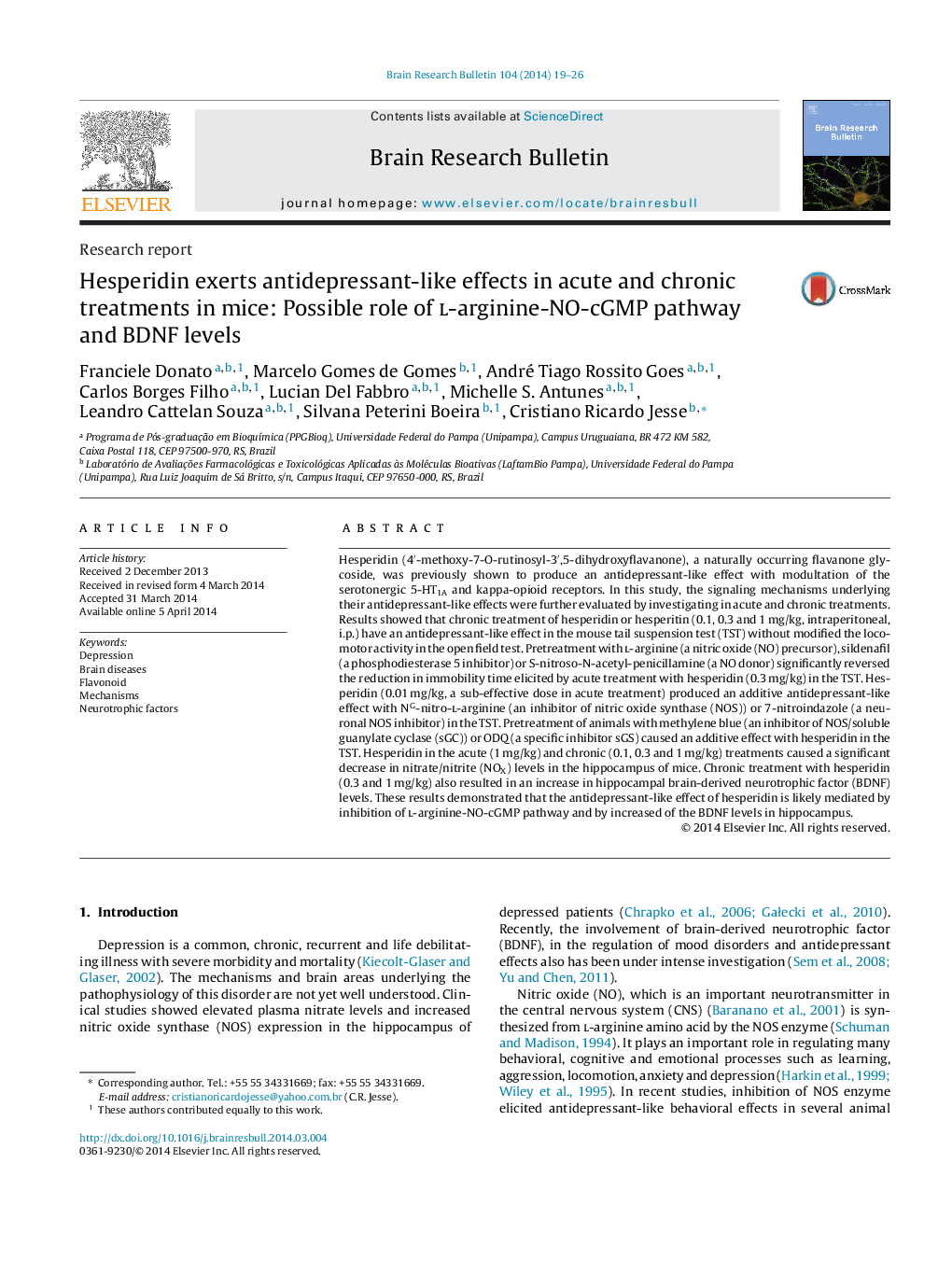| Article ID | Journal | Published Year | Pages | File Type |
|---|---|---|---|---|
| 4318820 | Brain Research Bulletin | 2014 | 8 Pages |
•Chronic treatment with hesperidin exerts antidepressant-like effect in the TST.•Hesperidin caused a significant decrease in NOX levels in the hippocampus.•Antidepressant-like effect of hesperidin was modulated by l-arginine-NO-cGMP pathway.•Effect of hesperidin also is associated with an increase in hippocampal BDNF levels.
Hesperidin (4′-methoxy-7-O-rutinosyl-3′,5-dihydroxyflavanone), a naturally occurring flavanone glycoside, was previously shown to produce an antidepressant-like effect with modultation of the serotonergic 5-HT1A and kappa-opioid receptors. In this study, the signaling mechanisms underlying their antidepressant-like effects were further evaluated by investigating in acute and chronic treatments. Results showed that chronic treatment of hesperidin or hesperitin (0.1, 0.3 and 1 mg/kg, intraperitoneal, i.p.) have an antidepressant-like effect in the mouse tail suspension test (TST) without modified the locomotor activity in the open field test. Pretreatment with l-arginine (a nitric oxide (NO) precursor), sildenafil (a phosphodiesterase 5 inhibitor) or S-nitroso-N-acetyl-penicillamine (a NO donor) significantly reversed the reduction in immobility time elicited by acute treatment with hesperidin (0.3 mg/kg) in the TST. Hesperidin (0.01 mg/kg, a sub-effective dose in acute treatment) produced an additive antidepressant-like effect with NG-nitro-l-arginine (an inhibitor of nitric oxide synthase (NOS)) or 7-nitroindazole (a neuronal NOS inhibitor) in the TST. Pretreatment of animals with methylene blue (an inhibitor of NOS/soluble guanylate cyclase (sGC)) or ODQ (a specific inhibitor sGS) caused an additive effect with hesperidin in the TST. Hesperidin in the acute (1 mg/kg) and chronic (0.1, 0.3 and 1 mg/kg) treatments caused a significant decrease in nitrate/nitrite (NOX) levels in the hippocampus of mice. Chronic treatment with hesperidin (0.3 and 1 mg/kg) also resulted in an increase in hippocampal brain-derived neurotrophic factor (BDNF) levels. These results demonstrated that the antidepressant-like effect of hesperidin is likely mediated by inhibition of l-arginine-NO-cGMP pathway and by increased of the BDNF levels in hippocampus.
